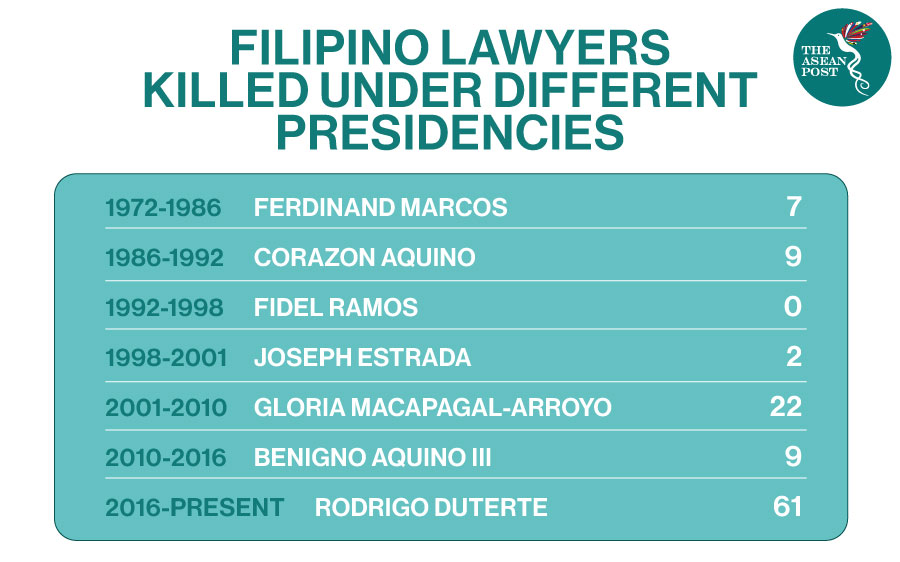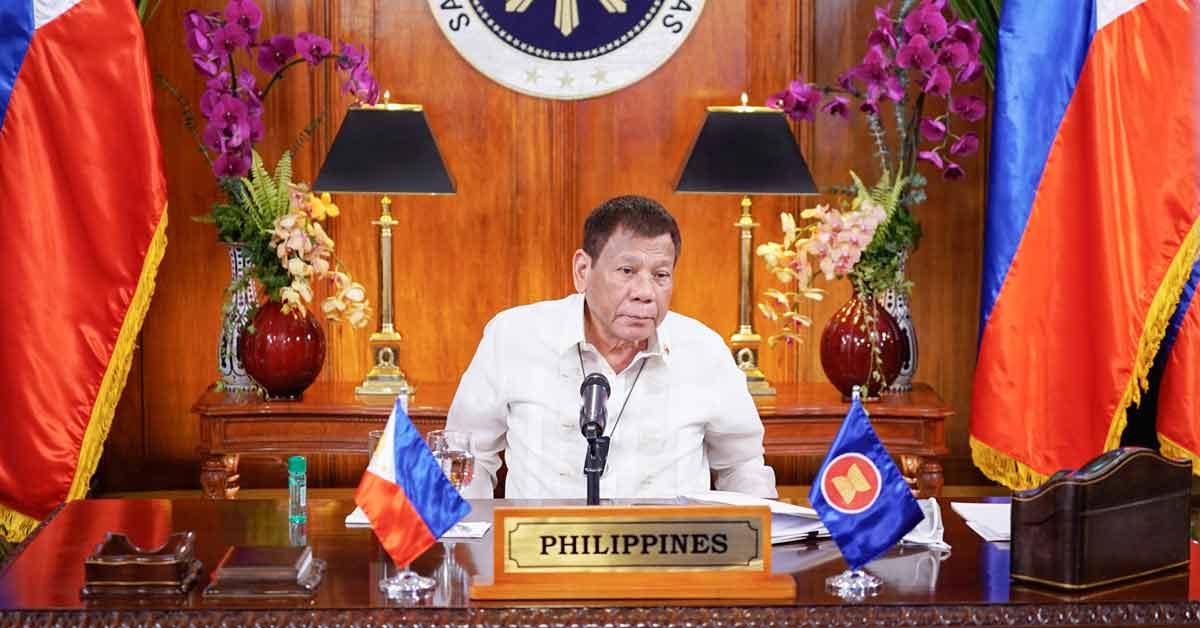On a Wednesday evening in early March, Angelo Karlo Guillen, Filipino human rights lawyer headed home after a long day at his office in Iloilo, a city renowned for its well-preserved Spanish-era homes in the central Philippine island of Panay.
As he walked to his residence, two men wearing ski masks appeared and started attacking him.
The assailants took his backpack, which contained his laptop and court case files, but left his wallet and smartphone untouched, according to the police report. They escaped with two other accomplices on separate motorbikes, and have never been found.
The 33-year-old lawyer was left slumped on the ground, fighting for his life. When rescuers found him, a yellow-handled screwdriver was still stuck in his left temple.
The Integrated Bar of the Philippines, the country’s largest group of lawyers, denounced the attack as a “brazen and bloody assassination attempt”. Guillen only managed to escape death by playing dead.
Police in Iloilo said they are still investigating the attack, after initially saying the incident could have been motivated by robbery.
At the time of the attack, Guillen was the legal counsel for at least two indigenous Tumandok leaders, who were among a group accused of resisting arrest during a police raid last December. Nine people were killed in the operation – part of a nationwide “anti-insurgency” campaign that President Rodrigo Duterte launched following the collapse of peace talks between the government and communist rebels in 2017.
Three days before the attack on Guillen, the village chief of a Tumandok community in Panay was shot dead by two men on a motorcycle. He was a key witness in Guillen’s case, and rights groups suspect the twin attacks may be related. The Tumandok community is fighting against a plan to construct a dam on their ancestral land.
In the five years since Duterte became president, dozens of people in the legal profession have been brutally attacked, often with deadly consequences. According to the Free Legal Assistance Group (FLAG), 61 lawyers, prosecutors and judges have been killed during Duterte’s term – higher than all the recorded deadly attacks on lawyers in the last 50 years under six previous presidents. Most were killed while doing their job.

There have been no convictions so far in any of the deadly attacks recorded since 2016, and the National Union of Peoples’ Lawyers (NUPL) is now calling on the United Nations (UN) special rapporteur on the independence of judges and lawyers, Diego Garcia-Sayan, to “undertake more aggressive and concrete measures” to help investigate and prosecute the perpetrators.
Lawyers In The Line Of Fire
Human rights lawyers like Guillen often find themselves in the line of fire, accused of being communist sympathisers because of their work defending land rights activists, environmentalists and farmers.
In 2018, Guillen’s name and photo were plastered all over Iloilo alongside other lawyers and legal workers and tagged as “Reds”. The label has given rise to the term “red-tagging”, the practice by government officials and security forces of calling anyone involved in left-wing activism “communist”. Although not new, rights advocates say the practice is being deployed with much more ferocity during Duterte’s term, targeting anyone who expresses dissent.
Last year, Guillen was among those arrested by police after he joined a protest to call for justice in the killing of a left-leaning political party leader in Panay. He also joined the challenge in the Supreme Court against the controversial anti-terror law that Duterte endorsed in 2020.
Among those who worked with Guillen in defending farmers in the Visayas region of the country was lawyer Benjamin Ramos, a fellow leader in the lawyers’ group, NUPL.
In October 2018, Ramos helped a group of sugarcane farmers in Panay’s neighbouring island of Negros, after nine of their colleagues were gunned down by unidentified men following a dispute over land ownership.
Less than three weeks after taking the case, Ramos also became a target. As he was smoking outside a shop in his hometown of Kabankalan, Negros, two men on a motorcycle struck, shooting him at least three times. He was pronounced dead at a nearby hospital, leaving a wife and three children behind.
Worth Fighting For
Recently, the Philippine Supreme Court, whose members have now mostly been appointed by Duterte, condemned the killings, and harassment of lawyers as “an assault on the judiciary”.
In a statement, the court said it would not “tolerate such acts that only perverse justice, defeat the rule of law, undermine the most basic of constitutional principles and speculate on the worth of human lives.”
Edre Olalia, president of NUPL, noted that the court’s statement “took some precious time to happen and at great cost”, but added that it was “comforting and reassuring”.
Justice Secretary Guevarra says that it is “difficult” to link the killings to President Duterte, who is himself a former government prosecutor.
“The President himself is a lawyer,” Guevarra said. “Do you think he will have a policy … that will put his fellow members of the legal profession in personal jeopardy or something to that effect? I don’t think so.” – Al Jazeera
Related Articles:
